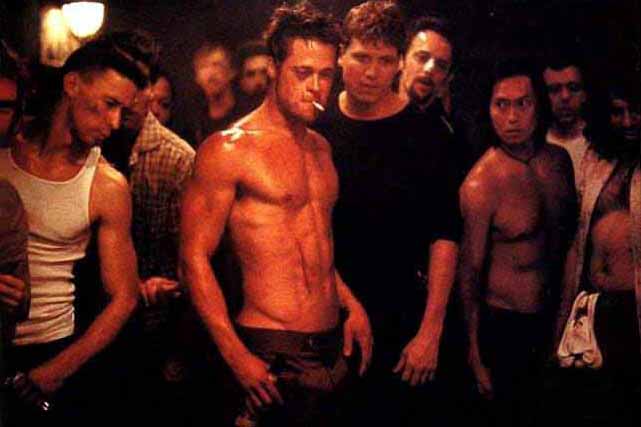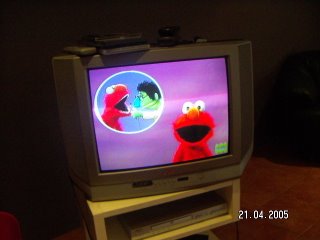That's me on the left - as you can see Quokkas are huge.
Going on camp tomorrow and thought I'd throw this together before anyone else read the previous blog and, well, contacted the authorities.
Rottnest island will be our destination with the 70, actually maybe 80, year 12 students. I'm running some seminars on stuff like happiness.
Here's an extract from the second seminar, just in case you thought you were missing out on somin'k.
Social isolation, the breakdown of community, has lead to sadness becoming pathological. Modern technologies and materialism ain’t doing much to help.
I came across an article that grabbed my attention, and while I didn’t entirely agree with the theory, the central tenets did address some of the things that I felt had gone wrong.
The article in question was from the Time magazine, written by the Evolutionary Psychologist Richard Wright. Evolutionary Psychology is as it sounds, an analysis of the way humans have developed and the way they best function within their environment. A lot of currency has been put into looking into the ancestral conditions humans found themselves.
In his article “Evolution of Despair”, Richard Wright describes his work as the “study of maladies resulting from contrasts between the modern environment and the “ancestral environment”, something he suggests being called ‘mismatch theory’.
Wright puts forward that we are designed for social cooperation, as it improves our chances of survival; natural selection has imbued our minds with an infrastructure for friendship; including affection, gratitude and trust.
Anxiety has a role to play in that having unpleasant feelings gets us into the next generation. Feeling ashamed or disappointed for actions taken that are not condoned by society are useful in causing us to stop and think. Bad feelings are natural.
What is not natural is going crazy: sadness to linger into debilitating depression, for anxiety to become chronic and paralyzing – these are diseases of the modern world.
IN trying to reconstruct the ancestral environment evolutionary psychologists have turned to technologically primitive society. One astonishing thing discovered was the low levels of cortisol (a by-product of anxiety) and when a Western Anthropologist tried to study depression amongst the Kaluli of New Guinea, he couldn’t find any.
The thing that turns sadness or dejection into pathology is social isolation.
It is tough living with social transparency. However the
Anthropologist Phillip Walker studied bones of more than 5000 children over a period of reaching back to 4000BC – he could find no evidence of scattered bone bruises. In modern society such bruises would be found on more that 1 in 20 children who die between the ages of 1-4. In the ancestral environment there is little mystery about what went on behind closed doors, because there simply weren’t any.
It is not urbanization that has so much been the problem, but suburbanization. The combination of transience and residential isolation leaves many people feeling along. The suburbs have been especially hard on women with young children. The Anthropologist Marjorie Shostak writing about life in an African hunter gatherer village that she did not come across isolated, bored mothers.
Evolutionary Psychology explains why modern feminist movement got it’s start after the suburbanization of the 1950s.
The 1963 book The Feminine Mystique apparently grew out of a conversation that the Betty Friedman with a stay at home mother in which the woman spoke with quiet desperation about the anger and the despair that Friedman came to call the problem with no name, and doctors came to call the housewife’s syndrome.
Harvard Professor Robert Putnam notes that the ultimate in isolating technology is the television. 28 hours (the average – which is highly likely to be more these days) in front of the TV is a lot of time bonding that you’re not doing.
Randolph Nesse, another evolutionary psychologist, points out that “Television can distort our self perception”. It is a fact that we compare ourselves with others, but now, we compete with the fantasy lives we see on television. Our own wives and husbands, fathers and mothers, sons and daughters can seem profoundly inadequate by comparison. So we are dissatisfied with them and even more so with ourselves.p.67
Timothy Miller in How to want what you have writes “The pursuit of more can keep us from better knowing our neighbors, better loving our kin – in general, from cultivating the warm affirmative side of human nature…People spend their lives honestly believing that they have almost enough of whatever they want. Just a little bit more will put them over the top; then they will be happy forever.”
We are medicating our depression without asking why it is there. Gail Bell examines some of the factors, while Guy Rundle assesses the questionable values we have subscribed to.
Part of Gail Bell’s answer lies in re-examining the role that depression plays. Guy Rundle (executive producer of ABC arts) puts it well in his published response to
“Much of what is currently called ‘depression’ is a new and real social – psychological disorder, produced by widespread transformations of Western societies in the past three decades. In response to these transformations - in shorthand, the media revolution, and the changes to work and home life, and social space and culture – many of us have become more vulnerable to the onset of feelings that selfhood, existence and connection to others have been pulverized, and that meaning and contentment are not only absent, but impossible. ”p83
Rundle goes on to say
“ Our culture…has become one in which strength, aggressiveness, selfishness and hardness have become the cardinal virtues. The hard bodied ethos of the gym, the competitive nature of the contractual and outsourced work, the visibility of enormous wealth, the surgically enhanced standards of beauty, and the theme of social life as competition (a la Big Brother) have become central motifs. Even in areas of public emotional life – pop music, TV shows like Oprah – the ‘touchy feely’ content is frequently subsumed under the idea of shaping oneself for maximum success…(We are)…one step on from “greed is good” – it is not money per se, but power, recognition and the capacity to “make a mark” that one shapes oneself towards…What could be worse than admitting something is wrong”p.86
Richard Wright would say that it is social isolation, the breakdown of community that has created an environment of despair.
Gail Bell, and further Guy Rundle put it down in part to the changes of our values that are unsustainable in light of the destruction they are causing.
Ok... move on now, go watch some Beat Takeshi or listen to Arcade Fire...













